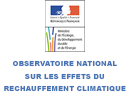Spatialization of the impact of economic regulation of the agriculture-related greenhouse effect
Spatialization of the impact of economic regulation of the agriculture-related greenhouse effect
With, on the one hand, the general theoretical macroeconomic models dealing with global pollution and growth and, on the other, physical models running on the finest of scales, there is room for sectoral evaluations on scales relevant to policy-making in the field of the economic regulation of externalities.
The ‘Spatialization of the impact of economic regulation of the agriculture-related greenhouse effect’ project fits within this disciplinary and spatial gap. It builds on a sectoral model of agricultural supply that is based on mathematical programming and optimization and is operational at European Union level.
With a modular design that makes it possible to integrate modules interlinking production and environment, it is also adapted to different scales of analysis – typical groups of producers, regions, EU Member States.
This proposed applied research project aims to facilitate data exchanges between economic and biophysical models and databases, on the one hand, and, on the other, to systematize a mode of representing the results of economic analyses aimed at potential users unfamiliar with the models. This fluidity of information and visualization of results will be based on geographical information systems that will need to be adapted to the study of agriculture-related greenhouse gas emissions.
The project has three components:
- (i) The re-orientation of the economic analysis methods currently being elaborated towards a more homogeneous approach to EU agriculture;
- (ii) The collection of information and technical and physical references in keeping with available economic information (EU’s Farm Accountancy Data Network);
- (iii) The development of a computerized interface allowing an integrated access to references and results concerning economic production and environmental criteria – among which, first and foremost, the greenhouse effect.
| Coordinators |
Pierre-Alain Jayet, INRA – Economie et Sociologie Rurale |
| Partnership |
INA-PG – DMOS |
| Funding |
MEDD
|
| Budget |
42 000 € (including tax)
|




